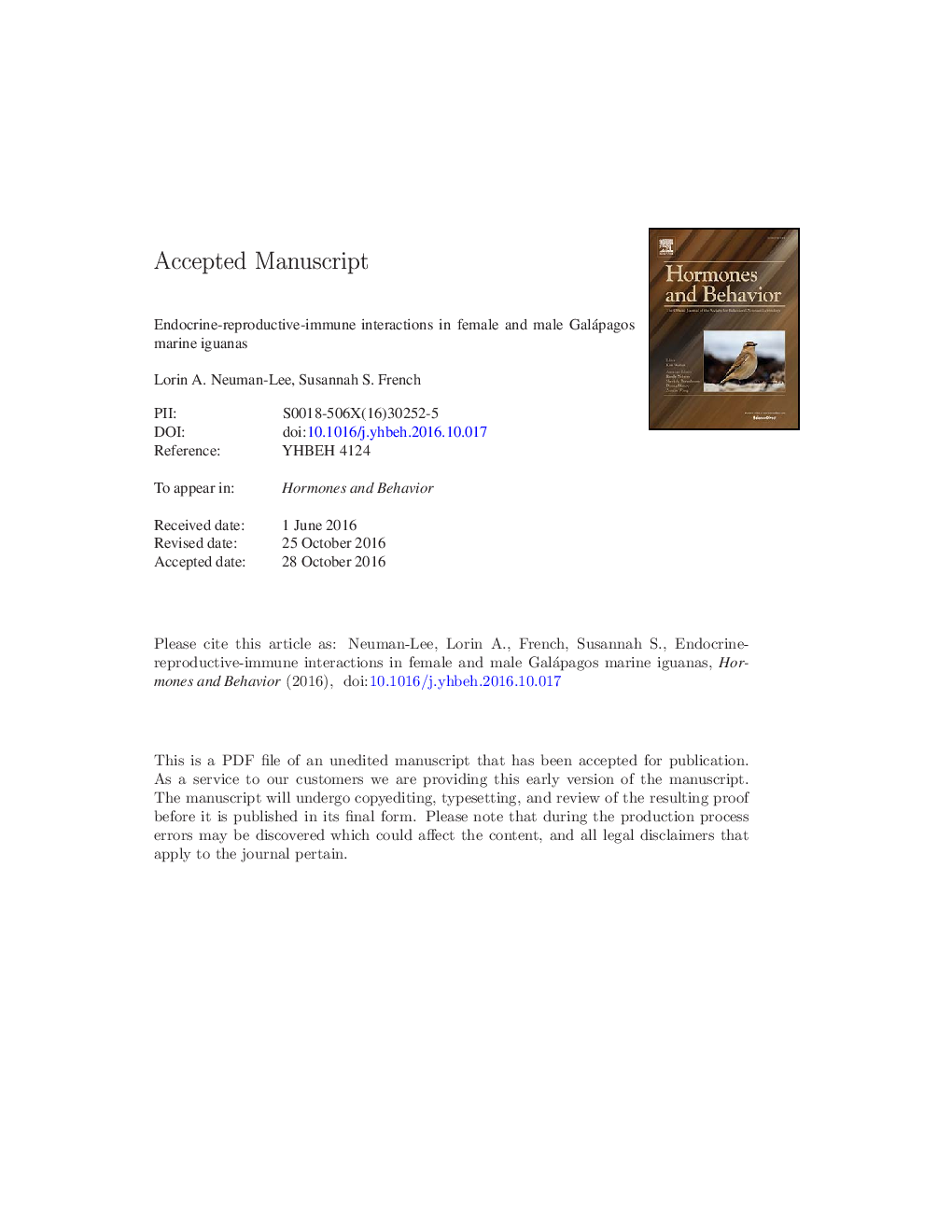| Article ID | Journal | Published Year | Pages | File Type |
|---|---|---|---|---|
| 4931203 | Hormones and Behavior | 2017 | 29 Pages |
Abstract
Endocrine-immune interactions are variable across species and contexts making it difficult to discern consistent patterns. There is a paucity of data in non-model systems making these relationships even more nebulous, particularly in reptiles. In the present study, we have completed a more comprehensive test of the relationship among steroid hormones and ecologically relevant immune measures. We tested the relationship between baseline and stress-induced levels of sex and adrenal steroid hormones and standard ecoimmunological metrics in both female and male Galápagos marine iguanas (Amblyrhynchus cristatus). We found significant associations between adrenal activity and immunity, whereby females that mounted greater corticosterone responses to stress had lower basal and stress-induced immunity (i.e., bactericidal ability). Males showed the opposite relationship, suggesting sex-specific immunomodulatory actions of corticosterone. In both sexes, we observed a stress-induced increase in corticosterone, and in females a stress-induced increase in bactericidal ability. Consistent with other taxa, we also found that baseline corticosterone and testosterone in males was inversely related to baseline bactericidal ability. However, in females, we found a positive relationship between both testosterone and progesterone and bactericidal ability. Multivariate analysis did not discern any further endocrine-immune relationships, suggesting that interactions between adrenal, sex steroid hormones, and the immune system may not be direct and instead may be responding to other common stimuli, (i.e., reproductive status, energy). Taken together, these data illustrate significant endocrine-immune interactions that are highly dependent on sex and the stress state of the animal.
Keywords
Related Topics
Life Sciences
Biochemistry, Genetics and Molecular Biology
Endocrinology
Authors
Lorin A. Neuman-Lee, Susannah S. French,
